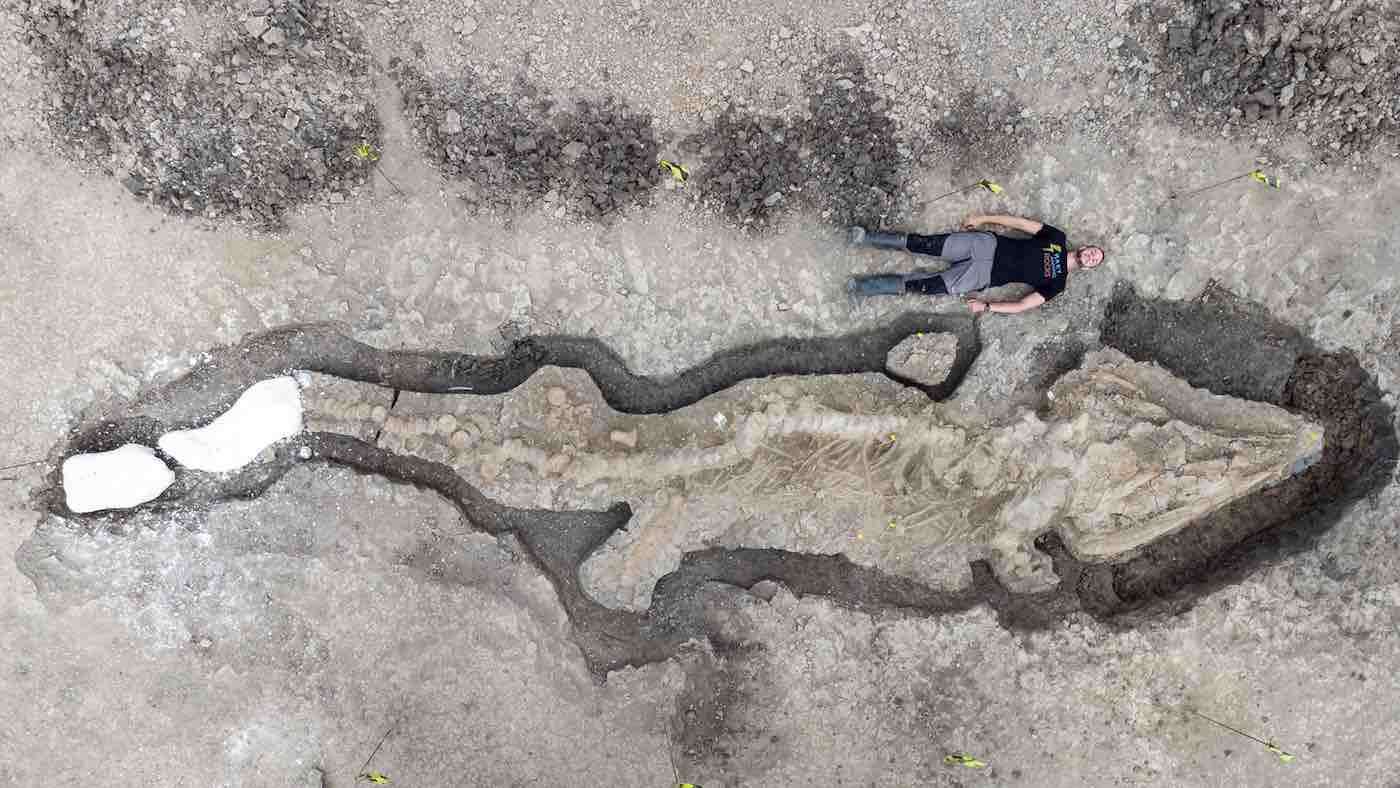'Impossible Fossil' Preserves the Exact Moment the Dinosaurs Died: 'It's Absolutely Bonkers'
A mass grave of marine and land dinosaurs jumbled together provide near-unmistakable evidence of the comet impact that killed the dinosaurs.

A fossil of a giant sea reptile found in England is being called the greatest find in the history of British paleontology.
A complete ichthyosaur skeleton from tooth to tail was discovered in the mud of a lagoon in Rutland Water Nature Reserve. It's in such pristine condition that it looks as if it could have died recently.
At nearly 30-feet long with a 7-foot skull, it's the biggest and most complete skeleton of its kind found to date in the UK and is also thought to be the first ichthyosaur of its species (Temnodontosaurus trigonodon) found in the country. The discovery recently made headlines after the broadcast of a BBC 2 special called Digging for Britain.
During a routine draining of the lagoon in the Rutland Water Nature Reserve in February 2021, Conservation Manager Joe Davis noticed what appeared like a set of clay pipes while he was walking across the exposed mudflats
"They [the pipes] looked organic. I worked out on the Hebrides, so I've found whale and dolphin skeletons before. This appeared similar and I remarked to [Reserve Officer] Paul Trevor that they looked like vertebrae," Davis recounts in a statement. "We followed what indisputably looked like a spine and Paul discovered something further along that could have been a jawbone. We couldn't quite believe it."
"The find has been absolutely fascinating and a real career highlight, it's great to learn so much from the discovery-and to think that this amazing creature was once swimming in seas above us." (Watch the video below…)
Ichthyosaurs first appeared around 250 million years ago and went extinct 90 million years ago. They were an extraordinary group of marine reptiles that varied in size from 1 to more than 25 meters in length, and resembled dolphins in general body shape.
Anglian Water, a water management company that owns the Reserve and co-runs it with the Rutland Wildlife Trust, says it wants to secure heritage funding, which would ensure the precious treasure could remain in Rutland where its legacy can be shared with the community and visitors.

National Geographic, reporting on the find, claims that this particular species was the largest marine carnivore on the planet during the early Jurassic period. They could get even bigger than the Rutland ichthyosaur as well, which was found with several ichthyosaur teeth next to a part of its tail that had been pulled at, suggesting a bigger specimen had been scavenging the carcass.
Weighing more than a ton, the fossil had to be wrapped in plastic with wooden splints and then caked in plaster of Paris in order to ensure it survived the hoist onto the truck that took it away to be studied and preserved.
"Despite the many ichthyosaur fossils found in Britain, it is remarkable to think that the Rutland ichthyosaur is the largest skeleton ever found in the UK," said Dr. Dean Lomax, a paleontologist and renowned expert in the species.
"It is a truly unprecedented discovery and one of the greatest finds in British paleontological history."
WATCH the fantastic video taken at the site by Anglian Water…
UNEARTH This Remarkable Find on Social Media By Sharing…
Be the first to comment